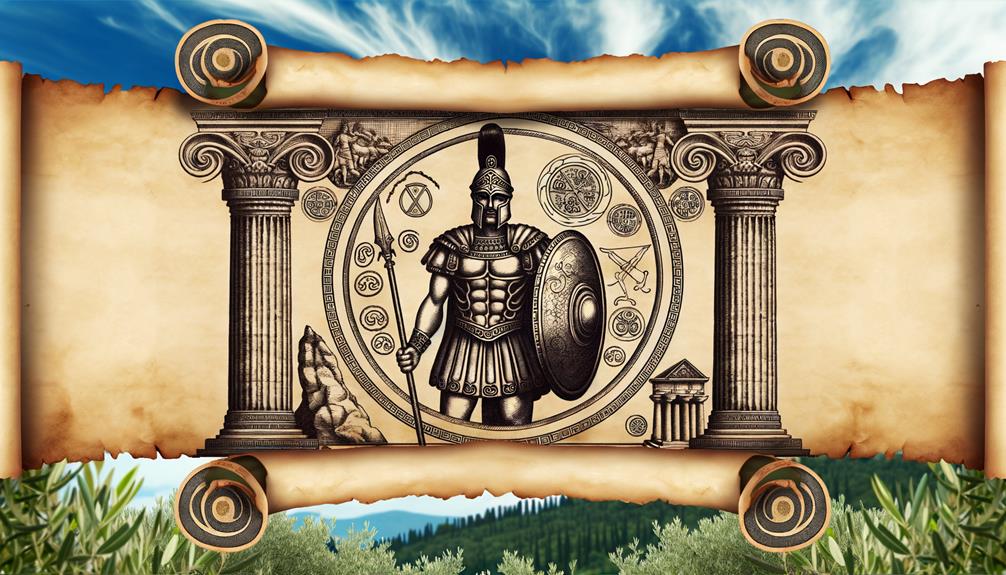Alexander Name Meaning and Origin
Alexander is a name of Greek origin, deriving from 'Alexandros,' which means 'defender of men' or 'protector of mankind.' It traces back to ancient Greece and gained significant recognition through Alexander the Great. This name has historically been popular among European royalty and nobility and has been borne by notable figures in literature, science, and politics, such as Alexander Pope and Alexander Fleming.
The name carries connotations of strength, leadership, and resilience and remains popular in modern times, often appearing in various forms like Alex or Xander. Learn more about its rich historical and cultural significance.

Key Takeaways
- The name Alexander originates from the Greek name 'Alexandros.'
- It means 'defender of men' or 'protector of mankind.'
- Alexander gained historical recognition through Alexander the Great's influence.
- The name is deeply rooted in historical and mythological narratives.
- Modern variants include Alex, Sasha, and Xander, maintaining its leadership connotations.
Historical Background
Tracing its roots back to ancient Greece, the name Alexander has a storied history that spans millennia and has been borne by numerous influential figures. It gained prominent recognition through Alexander the Great, the Macedonian king whose vast empire stretched from Greece to Egypt and into the Indian subcontinent during the 4th century BCE. His conquests and the subsequent Hellenistic period profoundly influenced cultural and political landscapes.
The name's association with leadership and military prowess made it popular among royalty and nobility throughout European history. Beyond ancient domains, notable Alexanders have emerged in various fields, including literature, science, and politics, solidifying the name's enduring legacy. The name's widespread adoption underscores its historical importance and lasting appeal across diverse cultures.
Etymology and Meaning
The name Alexander originates from the Greek name 'Alexandros,' which is composed of the elements 'alexein,' meaning 'to defend' or 'to protect,' and 'aner,' meaning 'man.' This etymology underscores the name's inherent connotation of a 'defender of men' or 'protector of mankind.' In various cultures and languages, the name Alexander has been popular for centuries, and its meaning as a defender or protector has been valued by many. Similarly, the name Aurora has its own unique origins and connotations. The meaning of the name Aurora is derived from the Latin word for “dawn,” symbolizing the idea of a new beginning or a fresh start. This name has also been associated with the Roman goddess of the dawn, adding a sense of beauty and renewal to its significance.
The name's formation reflects both a martial and a protective quality, historically resonating in various cultures and languages. Alexander has been widely adopted across different regions and eras, maintaining its core meaning while adapting to linguistic nuances.
Its enduring popularity can be attributed to its strong, noble connotations and its historical significance. The name's fusion of protection and masculinity has made it a timeless choice for parents seeking a name with profound meaning and legacy.
Famous Bearers
Throughout history, numerous notable individuals have carried the name Alexander, each contributing to its legacy across various fields such as politics, literature, and science.
Alexander the Great, the ancient Macedonian king, revolutionized military strategy and established one of the largest empires in history.
In literature, Alexander Pope emerges as a significant 18th-century English poet known for his satirical verse and translation of Homer.
The scientific domain features Alexander Fleming, whose discovery of penicillin in 1928 ushered in the antibiotic era, fundamentally transforming medical practice.
The name's prevalence in different eras and domains underscores its enduring appeal and association with leadership, intellect, and innovation, reinforcing its distinguished status across generations.
Cultural Significance
Rooted in a rich tapestry of historical and mythological narratives, the name Alexander holds profound cultural significance that spans continents and epochs. Originating from the Greek name Alexandros, meaning 'defender of the people,' it is deeply entwined with classical antiquity.
Most significantly, Alexander the Great, the Macedonian ruler, epitomizes the name's heroic and imperial connotations, having established one of the largest empires in ancient history. In mythology, Alexander often appears as a valorous figure, embodying ideals of bravery and leadership.
The name has been embraced by numerous cultures, including Roman, Byzantine, and Slavic traditions, each adding layers of reverence and historical depth. Consequently, Alexander remains a symbol of strength, leadership, and enduring legacy across diverse cultural landscapes.
Modern Usage
In contemporary times, the name Alexander continues to enjoy widespread popularity and relevance, frequently chosen for its historical prestige and strong, timeless appeal. Its enduring charm is reflected in various fields, from literature to politics, where prominent figures often bear the name.
Alexander consistently ranks highly in baby name lists across multiple cultures, indicating its broad, cross-cultural acceptance. Modern variants, such as Alex, Sasha, and Xander, further attest to its versatility.
The name's association with leadership and nobility remains influential, making it a preferred choice among parents seeking a name with a rich heritage and contemporary resonance. This lasting appeal underscores Alexander's unique position as a name that bridges past and present seamlessly.
Conclusion
The name Alexander carries with it a rich tapestry of historical significance, cultural impact, and etymological depth.
Like the legendary Alexander the Great, who extended his empire across continents, the name has traversed time and geography, embedding itself in various cultures and languages.
With its roots in ancient Greek, meaning 'defender of the people,' Alexander remains a timeless choice, symbolizing strength and resilience.
This enduring legacy maintains its continued relevance in modern times.






